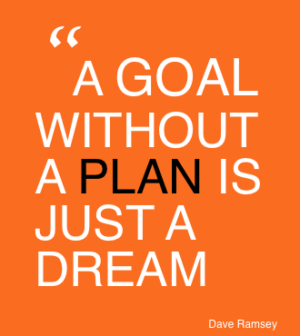- Belgium comes to Yamashita Park
- Residential Villa in Phuket Entices Remote Workers With Long-Stay Rates
- Rare pieces of French glass art at the Mirai Museum of Art
- Feast on fresh fish and seafood at the 2024 ‘Sakana’ Festival
- Would you like to ride in a Louis Vuitton gondola lift?
- Naked Snow Aquarium
- Festive lights at Yomiuriland will get you feeling the holiday vibes
Time to Thrive Part 2: The Planning Paradox

You’re smart, successful and ambitious. You work hard. You’re obsessed with being productive. So why do you always find yourself wondering where the time goes and if you’re really making progress?
Last month, I introduced the first of three reasons smart, successful people struggle to maximize the ROI on their time: they want too many things. To build a life where you can thrive, you need to let go of your desire to “have it all” – at least for now. Trying to do too many things at once spreads your energy too thin and guarantees you will lack the momentum to finish anything you start. Focusing on one thing to completion increases the energy and confidence you can bring to whatever you decide to do next.
But what if you do have one project that you’re focused on and you still struggle to find the time to move it forward? This brings us to the second reason people struggle to find the time to thrive: you don’t have a plan.
“I’m not an idiot,” you might be thinking, “Of course I have a plan!” But do you really? Over three decades of helping people to clarify and achieve their dreams, I’ve observed that what most people call a plan is really just a collection of ideas and strategies in their head. Few take their dream out of this “strategy brainstorming” stage and create a concrete written plan. Whether the goal is to write a book, build a website, get a promotion, or start a business, it requires many steps to get from here to there. Things must be done in the right order. Resources are required. Timelines are involved. Tasks are dependent upon other tasks. Holding all this information in your head is difficult enough, but attempting to keep it there and act on it is a recipe for failure.
If you’re ready to get serious about your dream, follow these steps to create a plan to make it happen:
• Affirm your purpose. Write down the core purpose and benefits of completing this goal. You are going to hit roadblocks as you work towards your dream. It will be hard. You’ll want to give up. This is where you return to keep your doubts at bay and shore up your commitment to stay the course.
• Empty your head. Write down all the things you’ll need to do to achieve your goal that first come to mind. Set this list aside for an hour or a day. Come back and add any new ideas.
• Create a logical order. Review your list of action items and put them in the order they need to be done. Identify key milestones and group the tasks according to each milestone.
• Estimate your time. Estimate how long it will take you to complete each task. Multiply by five! No matter how accurate you think your estimates are, it always takes longer than you anticipate. The larger, more complex or more unfamiliar the task, the more you’ll underestimate the amount of time needed. Realistically assessing the amount of time each task in your plan will take is essential for sustaining your focus and motivation as you work towards your goal.
• Phone a friend. Chances are you lack some of the knowledge and experience to create an effective plan and accurately estimate time and other resources required. Find someone who has this experience to review your plan. If you don’t know anyone with the required expertise personally, make a list of 10 people you know who might and ask if they can connect you with a relevant expert.
• Block it out. Once you have your plan and timelines outlined, schedule specific milestones and tasks into your calendar or project management system. I use an online one called Asana but a paper daytimer can work just as well. Here is where accurately estimating task time becomes very useful. Break tasks into chunks that require 1-3 hours to complete. This makes it easier to schedule them into your day.
• Let go. Become conscious of what you need to give up to make time for your goal. If you need to commit 20 hours/week to writing your book, the time needs to come from somewhere. Cutting out TV, streamlining food prep routines, and reducing time on social media or social events are just some of the things my clients realize they need to let go of to make time to follow through on their commitment to their goal – and themselves.
• Prime the pump. Be cautious of cutting out things like exercise and sleep. It is tempting to compromise on these and keep the low value activities listed above, but beware: skimping on sleep and exercise drains the physical and mental energy you need to accomplish your goals.
It’s true that the best laid plans are bound to go awry, but don’t sweat it – the plan matters far less than the planning. The learning that occurs, the connections that are made, and the character that is built in the planning process fuels your ability to persist in creating your dreams.














